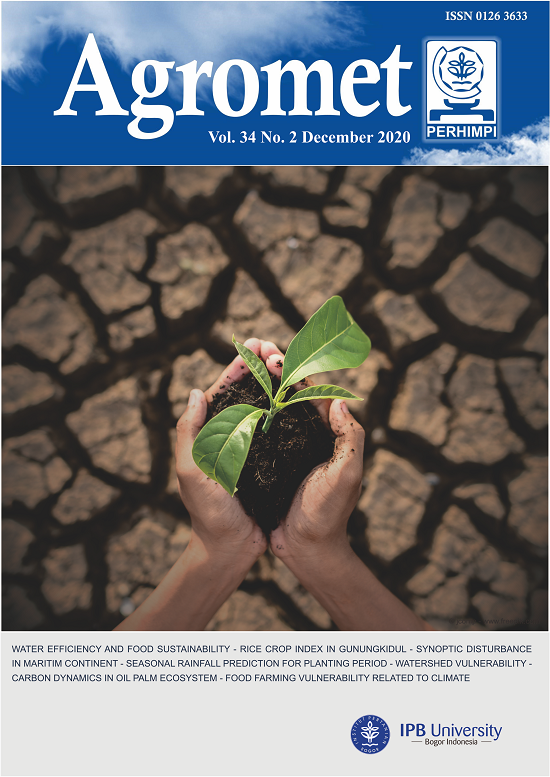The Potency of the Rice Crop Index Development through Adjustment of Agroclimate and Water Management Situated in Rainfed Field Gunungkidul
Abstract
One of the strategies to increase the rice self-sufficiency is by improving the rice crop index (IP) in rainfed field areas. This paper aims to obtain the areas for IP development based on agroclimate information on the rainfed fields in Gunungkidul. The methodology of research was based on descriptive analysis, surveys and interviews involving farmers, researchers, agricultural officers, and village officials. We performed field surveys and interviews in 2016 and 2017. The surveys were carried out by identification and verification of the water sources for agriculture, determination of the appropriate water infrastructure, and determination of the areas affected by rice cultivation development. The results showed that the determination of the beginning of planting season could refer the Modern Integrated Planting Calendar (KATAM) and the estimation of the start of the rainy season by the local meteorological office (BMKG). We estimated that as many of 2,111 ha was suitable for IP 200 development, which may raise the potency of rice production to 10,058 tons (increased by 5.10%). On other hand, the IP 300 only covers the rainfed field areas of 687 ha, which has a potential rice production of 3,294 tons (increased by 1.67%). Further identification and verification are needed regarding the potency of water sources. This will determine which types of proper water infrastructure that must be provided for support the development of IP, hence the national rice self-sufficiency.
Authors

This work is licensed under a Creative Commons Attribution-NonCommercial 4.0 International License.

